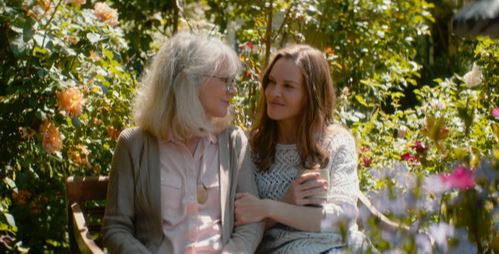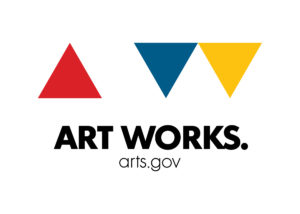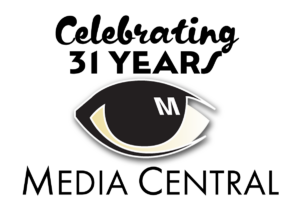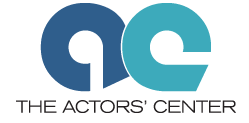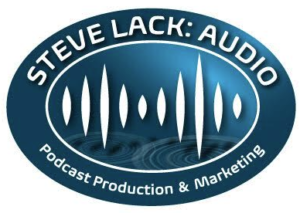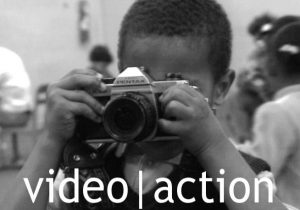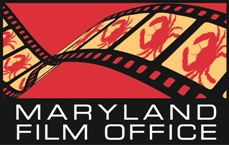By Kathy Dismukes
Recently, I had the opportunity to interview Elizabeth Chomko, the writer and director of What They Had, a brilliant new film starring Hilary Swank, Blythe Danner, Michael Shannon, and Robert Forster. What They Had is the bittersweet story, inspired by Chomko’s own life, of how a family endures the many losses that come when their mother (played with matchless grace by Blythe Danner) contracts Alzheimer’s. For a thoughtful review, check out Rolling Stone. For quick access to a dozen others, see Rotten Tomatoes.
The film had its world premiere this year at Sundance and its international premiere at TIFF. What They Had is currently playing locally at AMC Theaters, the Angelika Film Center Mosaic (Merrifield, VA), and the Cinema Arts Theatre (Fairfax, VA).
It’s a treat to tell you about how Chomko took What They Had from concept to screenplay to hit feature film that wows critics and touches our hearts.
The Journey Started Right Here in DC
Chomko studied at American University’s Department of Performing Arts, graduating in 2004 with degrees in theater and philosophy, along with a specialty in gender studies. One of the people who had a big impact on her was professor Caleen Sinnette Jennings, who has been teaching at AU since 1989 and has written more than 80 plays. One of Jennings’s many gems that stuck with Chomko was: “The more personal your story is, the more universal its reach.” She would keep that advice top-of-mind throughout the journey of What They Had.
After graduating from AU, Chomko worked as an actor (and, of course, waiter) in DC for a few years, appearing in productions at the Studio, Rorschach, and Woolly Mammoth theaters, among others. She had one of her plays staged with the Page-to-Stage New Play Festival at the Kennedy Center. Upon moving to LA, she found some acting work in TV series and short films, and she had a play staged with the Living Room Series at the Blank Theatre.
My Voice Matters
All the while, Chomko kept writing for herself but didn’t focus on getting her work “out there.” Gradually, she realized that part of the reason for keeping her work private was that she wasn’t confident that her voice mattered. Even when she began conceiving What They Had after several earth-shaking events happened in her family (no spoilers here!), it took her a long time to realize that she herself should be the one to write the story. Especially lately, she has been thinking about the issue of women stifling their own voices because they feel diffident and timorous. Chomko’s advice is plain and simple: “Nobody’s going to tell us we matter, so we have to tell ourselves…That’s something we can control.” For more of her thinking on this issue, check out her interview with Women & Hollywood.
Writing What They Had
Interestingly, Chomko knew from the beginning that What They Had was a screenplay, as opposed to a play. She got the basic story down on paper in three days, and then over the next months, refined it as she got feedback from family and friends in the business. With a new, heightened awareness, she watched a lot of movies and read a lot of scripts. Over time she developed her own process—she believes everyone develops a process that’s unique to them—and eventually wrote more than two dozen drafts of What They Had.
It Only Takes One Yes
After many months and many no’s, a friend of a friend who worked at CAA read the screenplay. He started passing it around, and it started getting a lot of attention. With things looking so auspicious, Chomko began focusing on writing full time and got an agent, who recommended she apply to the Sundance Institute’s Screenwriters and Composers Labs. She was accepted to the 2015 Sundance program and also won a Nicholl Fellowship for What They Had that year. Between Sundance and the Nicholl Fellowship, her knowledge of screenwriting grew exponentially, and she wrote many more drafts. She was also able to make some key industry connections. A beautifully crafted narrative with a resonant story makes for the kind of script that gets passed around like wildfire, and that’s what will ultimately get your movie made. ~ Elizabeth Chomko
Making What They Had
Producers Ron Yerxa and Albert Berger approached Chomko about next steps for What They Had, As things progressed, she began to think that the story was hers to tell and there was no other option but for her to direct. She believes that decision makers realized she would put that same kind of care into directing that she had put into the script and the project to that point. At last, her confidence was more in line with her abilities.
Hilary Swank read the script and was the first to sign. Swank’s championing helped build momentum, and eventually, the entire amazing cast was engaged. The budget was low and the timeline short (shoot = 22 days, editing = 15-16 weeks—editor not on shoot, sound mix = 2 weeks, color = 1 week, and boom, you’ve got yourself a film! Just kidding.) As with any filmmaking, the production of What They Had was full of absurd challenges, belly laughs, despair, and moments of artistic sublimity.
The project has been all-consuming since Chomko first put pen to paper about seven years ago, and the pace won’t slow for quite a while. Since the premiere at Sundance, she has been on a nationwide publicity blitz that includes umpteen appearances and interviews with critics, reporters, bloggers, and others. She’s exhausted but exhilarated. Somehow she has also found the time this year to write about writing and filmmaking, as well as encourage other women to step forward. Check out this MovieMaker magazine article, “Making Your Own Breaks: What Resources to Tap and What Rules to Break as a First-Time Screenwriter.” Chomko walks us through the entire process of writing and rewriting, taking notes from others, staying flexible, and managing the shooting experience.
Confidence is Catching
Elizabeth Chomko has several efforts underway and is starting a major project with writer-director Matt Reeves’s company. Keep this brilliant woman on your radar. In the meantime, go see What They Had to become part of a powerful story written by a woman, with a woman at its center, and to support a powerful cinematic experience created by a woman. It’s enough to inspire confidence in us all.
* * *
Kathy Dismukes is the founder of Pintail Productions, a Washington, DC area media production enterprise. Pintail Productions helps companies, associations, and nonprofits make strategic, effective use of both traditional video and new formats like 360 and AR. Kathy is also an impact producer and consultant specializing in fundraising, partnership building, and community outreach for films and nonprofits. A Women in Film & Video member since 2007, she served for two terms on the board of directors, including as VP of Development.

